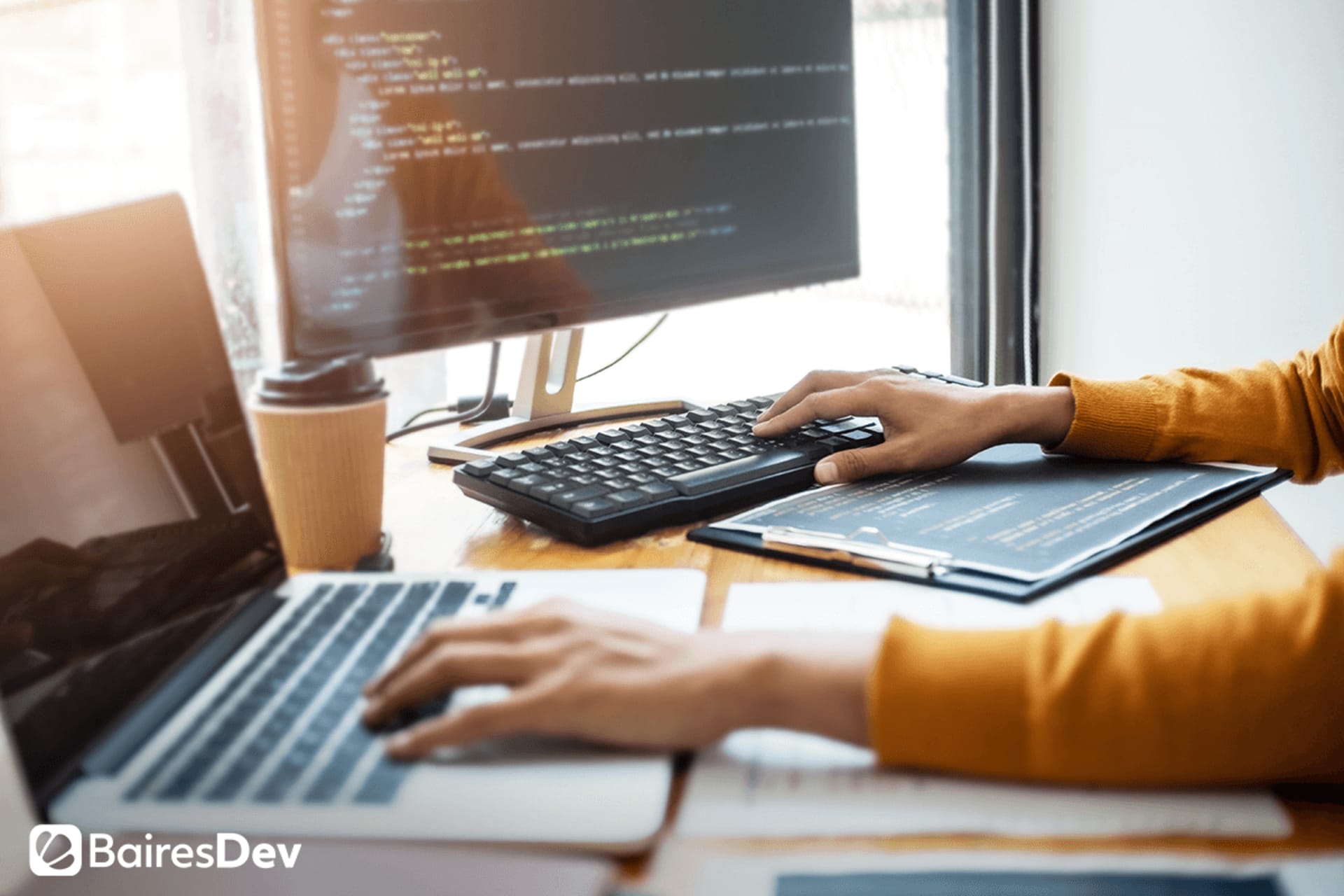Being one of the fastest-growing programming languages in the world, most Python developers are surely aware of how critical it is to be on top of the latest trends and practices in Python software development . However, there are millions of junior and novice programmers developing their first Python skills—and most of them don’t even know where to begin.
One of the best places to start is by mastering core concepts like the Python list, a fundamental data structure that underpins countless real-world applications.
That’s why I decided to make this quick overview of the top 3 skills every beginner Python developer should focus on at the start of their career. Still, bear in mind that, just like in any other programming language, mastering software development skills is all about consistency. Becoming a great Python developer is a marathon, not a race.
1. Core Python and Python Frameworks
I know that every “best Python skills ” guide mentions this, but it’s just too important to leave behind. For starters, knowing your way around Core Python is the first step to every other thing you can do with this language. If you’re just starting your journey as a Python developer , then I would definitely suggest going through a Python bootcamp where you can learn everything from iterations to data structures.
To truly grasp its potential, it’s also essential to understand why use Python, as its versatility and ease of use make it a top choice for everything from web development to data science and AI.
You don’t need to know every single module, though. That’s the type of knowledge that can only be built over time. Once you know your way around the basic concepts (aka Object-oriented programming, Data types, File handling, Generators, etc), sailing forward should become a lot easier.
Now, when it comes to Python frameworks, the most valuable thing is to understand how they work and the logic behind them. Unless you’re a 300 IQ genius (which no one needs to be to become a great Python developer), I don’t think it’s worth trying to learn them all from the beginning. I would also recommend focusing more on the most popular ones, like Django, Flask, and CherryPy.
What I love about Python is how beginner-friendly it is, so learning is easy even for people with literally no experience in programming. And if you’re coming from another programming language, even better!
2. Architectures and Libraries
Most amateur Python developers freak out when they hear anything about software architectures. I know I did. However, architectural knowledge is a must if you ever want to step-up your programming game. Luckily, Python’s object-oriented architecture is not that hard to understand.
First, be sure you are familiar with Object-relational mappers (ORM) so you can forget about time-consuming SQL writing. Python developers use many customizable ORM tools in their day-to-day to create a virtual object database in which they can convert data between two incompatible systems. This makes it a lot easier to connect an app to a database.
After that, you can start thinking in terms of multi-process architectures. Although design engineers are usually the ones in charge of knowing which codes are used throughout release and deployment, it’s also your duty as a Python Developer to have a comprehensive understanding of this since you will be fixing issues in the core framework. The MVT (Model View Template) and MVC (Model View Controller) architectures should have everything you need to start.
Keep in mind that architectures and libraries always go hand-in-hand. Python libraries are there to make your work easier, faster, and more efficient. And although there are tons of must-know libraries, I believe these are the ones you should have in your toolbelt from the start:
- Requests . This is the most famous HTTP library and for good reason. You’ll most likely find yourself using it every day.
- Pillow . An extra-friendly Python Imaging Library (PIL) that will make your life a whole lot easier when it comes to working with images.
- BeautifulSoup . Although it isn’t the fastest XML/HTML parsing library, it’s certainly popular among beginners.
- Twisted . Once the time comes to deal with network applications, this is what you want. Its beautiful API is used by most senior Python developers.
- NumPy . Stop worrying about how to handle advanced math functionalities in your Python code with this library.
3. The Other Type of Developer Skills
Some people get into software development thinking they’ll be writing logic-based code all day and not worry about anything else. They couldn’t be more wrong! There’s another type of software development skills that you absolutely need to become a great Python developer: I’m talking about the intrapersonal and interpersonal abilities you will need to create great software.
First, let’s talk about mentality. As we all know, Python is a very logic-based language, which makes it perfect for analytical-minded individuals. If you’ve ever had a keen fascination for data or statistics, this will be a piece of cake. If not, then I’m sure you’ll develop one in no time. An analytical mindset will help you develop the type of problem-solving knowledge you will need to do everything from web development to clean algorithm coding.
Next, we should talk about visual intelligence. Just like most people fail to understand the logic behind basic code scripting, most beginner Python developers fail to understand the basics of visual design. This ability comes into play in any web development project, so if you’re not sure about what web design is or you’re just not too familiar with what “looks good”, the time to learn is now. Otherwise, you will just develop bad habits that will harm your career in the near future.
And, finally, don’t dare to forget about your communication skills. Throughout your career, you will work with tons of amazing people and tons of people who won’t quite hit it off with you—but it will always be your job to make high-quality software with them. With good communication skills, you will have half of the job already done. As the saying goes, “If you want to go fast, go alone. If you want to go far, go together”.
Start your Journey Today
Clearly, these aren’t all of the skills you need to become a great Python developer. We haven’t touched topics like Front-End Technologies, Event-Driven programming, Server-Side Templating, Version Control, Database Schemas, and many more. But the way I see it, you’ll inevitably run into them as you go along. Focusing on these three skills is what you will need before doing anything else. It’s all about falling in love with the language and then using that passion to grow. Partnering with professional Python development services can provide expert guidance and accelerate your learning curve as you progress. When you outsource Python development, you can also benefit from expert guidance along the way. If you’re ready to scale your capabilities and deliver at a higher level, it’s time to build your Python team with the right experts.






